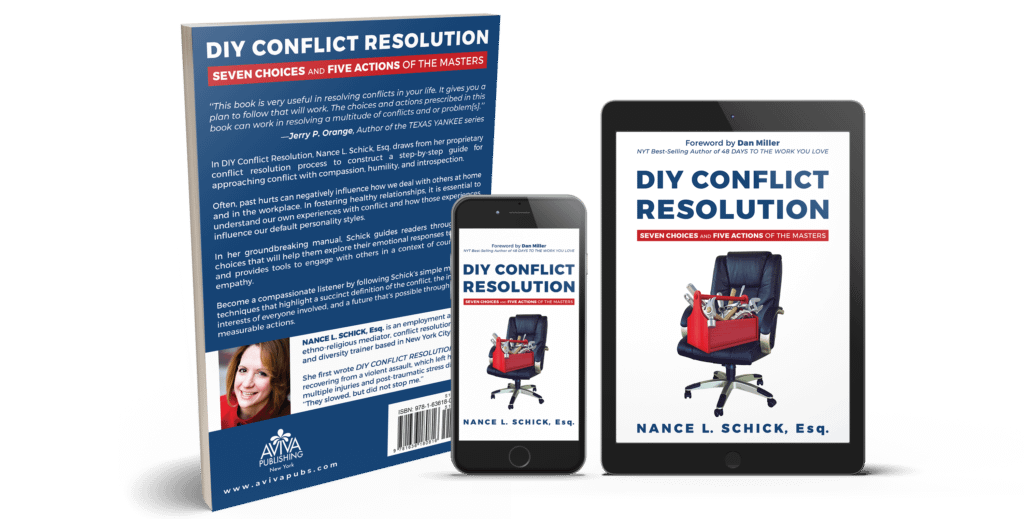I sometimes take unpopular positions. That’s part of being a lawyer, but it’s also an effective way of learning what is in our blind spots. As I re-read and updated this post again, as I do each year, I could again look more compassionately at the Restorative Justice Forum panelists from several years ago.
We’re all still learning to navigate racism in the United States. It’s still going to be uncomfortable and messy. I am still going to use the Third Ear Conflict Resolution process to guide my actions toward a unified human race.
Action One: Define the Conflict
I disagree with people who think it’s justified to be racist as long as it’s not against certain minority races.
Action Two: Identify the Interests
I want a unified world culture in which we celebrate our differences and connect through our commonalities. These are far greater than our differences.
I thought the panelists would be loving and want what I want. Instead, I heard comments about my privileged life, a white process, and a book for white people. I was hurt and felt defensive, but I am learning to listen and understand.
I believed that people trained in mediation would see beyond race, gender, class, and other outward appearances. I expected them to be super-human, which wasn’t fair of me.
I wish we could all refer to each other as human and use our language to practice unity, not further division.
I trust that the panelists genuinely wanted to educate us, although I’m not convinced it was about RJ. They used the panel to raise what seemed at the time to be different issues. They probably thought most of the white audience didn’t understand injustice at all because our experiences with it have been different from theirs. They might have been correct. Regardless, the pain was palpable–theirs and mine. As I’ve healed, I’ve been more open to the comments that made me uncomfortable.
Action Three: Play with the Possibilities
If I could have this conflict resolved in any way possible, all humans would stop limiting and isolating each other based on race. We would stop blaming living people for the sins of dead people who look like them. We would be given the benefit of the doubt and allowed to be the good, loving people we usually are–until there is actual evidence that suggests we erred. Then, there would be a fair process by which we could be accountable for our errors, make amends, and create better futures for ourselves and everyone involved. That’s what Restorative Justice is about.
Action Four: Create the Future
I am committing to be part of the solution, although I still have much to learn, even seven years after the original post.
- I will continue to speak up about racism.
- I will continue to examine my own prejudices and break free from them.
- I will eventually write my genealogy/history book discussing how limited our knowledge of history is based on what we learned in school and how closely we are related in DNA, regardless of race.
Action Five: Stay on PARR
This is not a painless process for a human, but I trust my brain’s neuro-plasticity–and yours. We can and will end this hateful construct.
https://thirdearcr.com/let-yourself-be-uncomfortable-about-race/
Want more conflict resolution practice?
